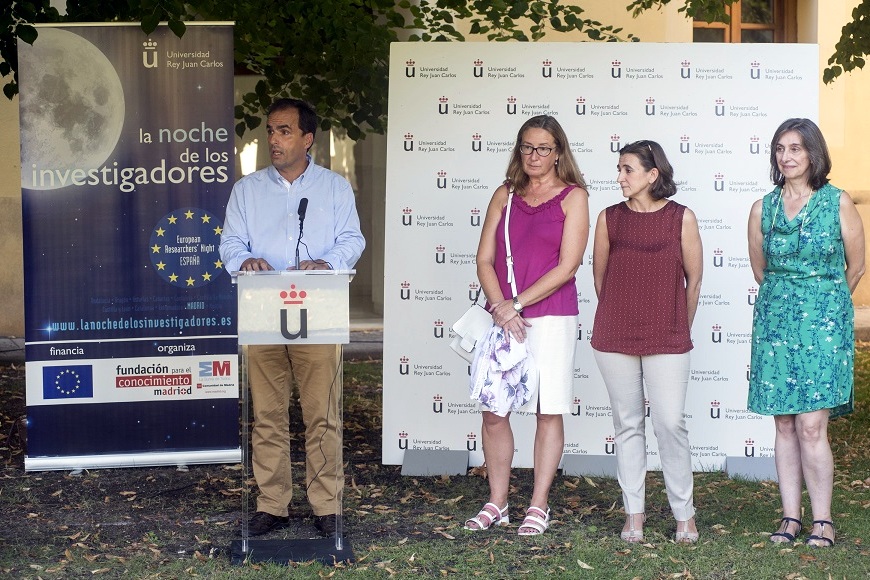Irene Vega
On the occasion of the European Year of Cultural Heritage, which is commemorated throughout 2018, the URJC experts on this subject wanted to show the public the work they do in their daily lives. More than 30 researchers from the Faculty of Legal and Social Sciences have brought the science behind disciplines such as History, Geography, Tourism, Archeology or Education closer to the attendees.
Throughout the day, about twenty activities have been held, which have had the participation of about 300 people, between adults and children. The attendees have been able to have close contact with the researchers both in the classrooms and in the surroundings of Campus de Aranjuez. Through the application of new technologies to the study and knowledge of heritage, virtual visits have been made to the fountains and gardens of the Madrid town and educational tours through the streets of Aranjuez to learn about the historical and collective memory of the city using Reality Augmented.
Contact with nature and art
The Gardens of the Royal Palace of Aranjuez have also been the setting for this edition of the European Night of Researchers. project members Erasmus+ K2 “Campo dei Miracoli”, in which the URJC participates and which is part of the initiatives of the European Year of Cultural Heritage of the European Commission, have offered an activity aimed at people with motor disabilities. The objective of this project is to develop sensory stimuli and motor, cognitive and emotional skills of these people to improve their inclusion and social integration. Artists from the Yehudi Menuhin Spain Foundation and the Italian painter Caterina Balletti from the cultural association Pinocchio by Carlo Lorenzini.
"The best we have are our researchers"
With this slogan, the rector of the URJC Javier Ramos has highlighted the work of all the professors and researchers of the institution, emphasizing that "universities are the best tool to generate knowledge". The official opening ceremony of the European Night of Researchers was also attended by Visitación López-Miranda, Vice-Rector for Research, María Jesús Alonso, Scientific Director of the Unit for Scientific Culture and Innovation (UCC+i), and Mercedes Castaño, manager of the Aranjuez Campus.

Photo: Javier Ramos, rector of the URJC, Mª Jesús Alonso, scientific manager of the UCC+i, Visitación López-Miranda,
Vice President for Research, and Mercedes Castaño, Manager of the Aranjuez Campus.
The most scientific evening of the year has ended with a light show at the San Carlos de Aranjuez Hospital. The RAMV collective, made up of professors from the URJC Fine Arts degree, has offered a projection of videos and images to recreate an ephemeral artistic intervention on the building's façade, similar to those of Land-Art.
The European Night of Researchers is a scientific dissemination project that has been held simultaneously in more than 340 European cities since 2005. It is funded by the European Union within the Horizon 2020 Research and Innovation Program (under grant agreement number 818.528).
In the Community of Madrid, it is promoted by the Ministry of Education and Research and coordinated by the Madri + d Foundation for Knowledge. The participation of the URJC in the European Night of Researchers in Madrid has been promoted by the Vice-Rectorate for Research since the first edition in 2010 through the Scientific Culture and Innovation Unit (CCU+i). The UCC+i promotes the participation of the university in scientific dissemination activities, which also have the collaboration of the Spanish Foundation for Science and Technology (FECYT), dependent on the Ministry of Science, Innovation and Universities.

















